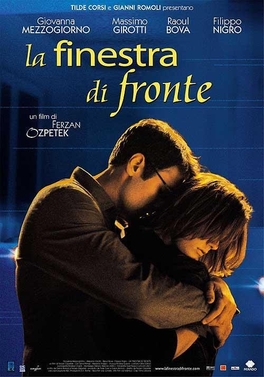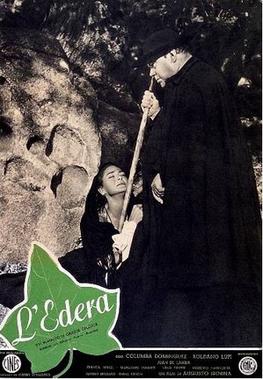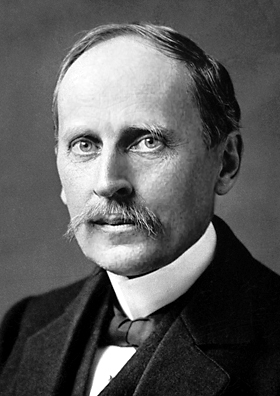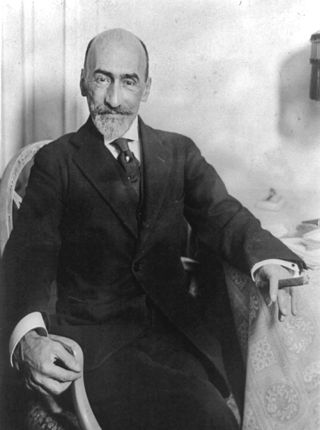
Grazia Maria Cosima Damiana Deledda was an Italian writer who received the Nobel Prize for Literature in 1926 "for her idealistically inspired writings which with plastic clarity picture the life on her native island [i.e. Sardinia] and with depth and sympathy deal with human problems in general". She was the first Italian woman to receive the prize, and only the second woman in general after Selma Lagerlöf was awarded hers in 1909.

Nuoro is a city and comune (municipality) in central-eastern Sardinia, Italy, situated on the slopes of Mount Ortobene. It is the capital of the province of Nuoro. With a population of 36,347 (2011), it is the sixth-largest city in Sardinia. Its frazione (borough) of Lollove is one of I Borghi più belli d'Italia.

Facing Windows is a 2003 Italian movie directed by Ferzan Özpetek.

Cenere is a 1916 silent film directed by and starring Febo Mari. It is adapted from the 1904 novel by the Nobel Prize-winning Sardinian writer Grazia Deledda. It is notable as the only film performance by the Italian theater star Eleonora Duse.

Devotion is a 1950 Italian melodrama film directed by Augusto Genina.

Andrej Budal was a Slovene-language writer, poet, journalist, and translator from Italy.
L'edera is a novel by Grazia Deledda published in 1908. It was translated into many languages, including an English translation by Mary Ann Freese Witt and Martha Witt with the English title Ivy.
Deledda is an Italian surname. Notable people with the surname include:

Flavio Soriga is an Italian writer.

Claudio Guastalla was an Italian opera librettist.

Canne al vento is a novel by the Italian author and Nobel Prize winner Grazia Deledda. After being published by episodes on L'Illustrazione Italiana, in the period January 13–27, 1913, it was released as a volume by editor Fratelli Treves in Milan. It's considered the most notable work written by Deledda. The title of the book is an allusion to human frailty and sorrow, which was already found in Elias Portolu, written in 1900: Uomini siamo, Elias, uomini fragili come canne, pensaci bene. Al di sopra di noi c'è una forza che non possiamo vincere.

Ellen Rydelius was a Swedish translator and writer. She wrote a large number of guide books to major cities and several cookbooks but her major works are translations of Russian novels. In particular, she is remembered for her translation into Swedish of Fyodor Dostoevsky's Brothers Karamazov.

Isotta Gervasi was an Italian medical doctor, she was the first woman in Italy to work as a medical doctor. She worked in the Cervese area and, thanks to her determination to aid those in need, she acquired a legendary image over time, so much so that she was remembered as the "doctor of the poor" and the "angel on a bicycle". Grazia Deledda, a close friend of Isotta who was spending her holidays in Cervia, dedicated an elzeviro, an article in the third page of a newspaper, to her in Corriere della Sera in August 1935:
"The doctor is beautiful, elegant, in the evening she transforms like the fairy Melusina, with her clothes and her dazzling jewels and her eyes and teeth even more dazzling: a fairy is also so in front of the sick bed, whether a prince or a worker, to whom, in addition to her skilful care, she generously gives bottles of ancient wine, chickens and flowers. Her name is Isotta."

Ebba Gustava Augusta Atterbom was a Swedish translator and educator. She was the first person to translate the work of Irish novelist James Joyce into Swedish. In 1959, she was awarded the Order of the Star of Italian Solidarity in recognition of her contributions in Italian to the literature of Sweden.
Marie Lera was a French journalist, novelist, and translator. She is best known for her book, Le secret des "Désenchantées". Lera died in 1958.

Mariano Deidda is an Italian singer, musician and songwriter.

The 1913 Nobel Prize in Literature was awarded to the Bengali polymath Rabindranath Tagore (1861–1941) "because of his profoundly sensitive, fresh and beautiful verse, by which, with consummate skill, he has made his poetic thought, expressed in his own English words, a part of the literature of the West." He is the first and remains only the Indian recipient of the prize. The award stemmed from the idealistic and accessible nature of a small body of translated material, including the translated Gitanjali.

The 1915 Nobel Prize in Literature was awarded to the French author Romain Rolland (1866–1944) "as a tribute to the lofty idealism of his literary production and to the sympathy and love of truth with which he has described different types of human beings." The prize was awarded the following year on November 9, 1916 and he is the third Frenchman who became a Nobel recipient for the literature category.

The 1926 Nobel Prize in Literature was awarded to the Italian author Grazia Deledda "for her idealistically inspired writings, which with plastic clarity picture the life on her native island and with depth and sympathy deal with human problems in general." She was the second Italian and second female Nobel laureate in literature.

The 1922 Nobel Prize in Literature was awarded to the Spanish dramatist Jacinto Benavente (1866–1954) "for the happy manner in which he has continued the illustrious traditions of the Spanish drama".
This page is based on this
Wikipedia article Text is available under the
CC BY-SA 4.0 license; additional terms may apply.
Images, videos and audio are available under their respective licenses.
















